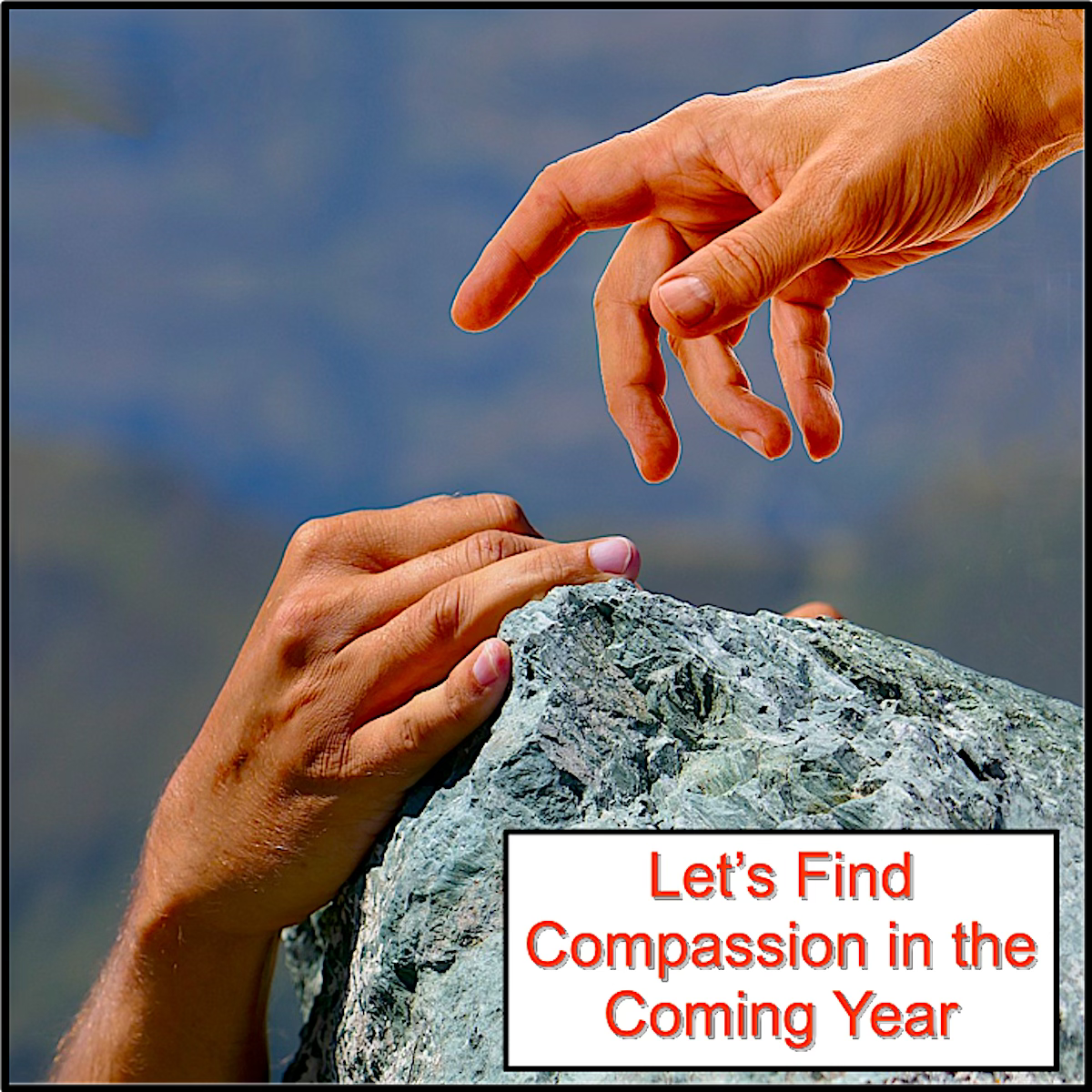Doctors, Christmas, and the Coming New Year
“You are the salt of the earth. But if the salt loses its saltiness, how can it be made salty again? It is no longer good for anything, except to be thrown out and trampled by men.” – Jesus Christ – Matthew 5:13
What will you do with YOUR part of the world?
I don’t know about you, but the end of every year leading up to the beginning of the next year is – for me – a time of reflection and self-evaluation. Have I been the kind of person that I can be proud of in the last twelve months? Have I done my best to treat others as I would want to be treated? Have I made the world a better place?
Christmas is the time of year that we commemorate and celebrate the birth of Jesus Christ – the Prince of Peace. Along with that idea comes the thought of whether we have applied what Jesus taught – or have we taken a different road: perhaps one we are not happy with. Now is the time to consider all this and regroup in ways that will make the world a better place – and can make us better people. The start of a new year always offers the possibility for improvement.
Practicing medicine is a high-pressure time-driven process. We never have enough time to do what we need to do. Adding to the ordinary need to keep moving is the long list of medical record requirements from government and insurance companies that doctors are required to complete with every patient visit. The net result is a never-ending race against the clock – to get all the required busy work done while somehow rendering good quality medical care.
Making people feel better is not impossible, and it starts with the doctor. Building a bridge from the busy stranger who enters the room to meet with people who have probably been waiting for some time is critical. Striking up some pleasant conversation is always a good start, asking about the family or other personal matters with which you are familiar is helpful, but above all the doctor must make sure the patient knows that he CARES about them. That is the salt of the earth that Jesus talks about. We must somehow make the patient know that we love them. That is one of the most important communications of the whole encounter. Everything else depends upon that.
A lot of medical care does not take much time. Perhaps it is a quick blood pressure check or a review of recent laboratory tests that were recently done. Other sessions may be more prolonged, as in exploring health concerns or determining the source of new health challenges. But the common denominator is the idea of sharing care and concern. Anything we can do to make the patient know that we love them is critical.
I totally understand when some doctors say to me, “Well, I’m just not the warm-and-fuzzy type.” That’s okay, everyone has to be who they are. But it does not take much effort to just extend kindness – ask about the patient’s family, find out what their interests are and make a note to ask about them next visit.
The critical moment that no doctor should miss is when a patient is in personal crisis. It may be an unexpected illness, it may be marital problems, it may be an extreme job difficulty. Those are the moments when the doctor must roll up their sleeves, let the next patients know you are running slow, and lean into the encounter. Listen, listen, and listen. When you have a handle on things, that is when you can be of assistance. Absolutely do what is right, but letting that patient know that you care is the key to success in the interpersonal sense.
It is all this together that makes the words of Jesus so critical to patient care – and to life. When you are truly needed, will you be the salt of the earth? Or will you just be aloof and not bother to get involved? If you choose the former, good for you and good for your patient. If you are the latter, you may be in fact “ . . . no longer good for anything, except to be thrown out and trampled by men.” In the coming year, let us honor the birth of Jesus by practicing what He teaches. Let’s make medical care a kindly, loving place.





